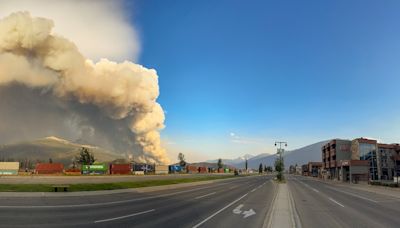Search results
Mount Everest, Earth's highest mountain. A mountain is an elevated portion of the Earth's crust, generally with steep sides that show significant exposed bedrock.Although definitions vary, a mountain may differ from a plateau in having a limited summit area, and is usually higher than a hill, typically rising at least 300 metres (980 ft) above the surrounding land.
mountain belt. mountain, landform that rises prominently above its surroundings, generally exhibiting steep slopes, a relatively confined summit area, and considerable local relief. Mountains generally are understood to be larger than hills, but the term has no standardized geological meaning. Very rarely do mountains occur individually.
The summit of Mount Everest, at 29,035 feet (8,850 meters), is the highest point on Earth. The tallest mountain measured from top to bottom is Mauna Kea, an inactive volcano on the island of ...
Jul 27, 2018 · 25 of the World's Most Iconic Mountains. Explore awe-inspiring peaks from the Himalaya to the Rocky Mountains. By Laura Taylor. July 27, 2018. Mountains come in all shapes, sizes, heights, and ...
mountain, Landform that rises well above its surroundings, generally exhibiting steep slopes, a relatively confined summit area, and considerable local relief (inequalities of elevation).Mountains are considered larger than hills, but the term has no standardized geologic meaning. Mountains are formed by the folding, faulting, or upwarping of the Earth’s surface due to the movement of plates ...
Apr 6, 2022 · Emad aljumah / Getty Images. The highest peak in India and the third tallest mountain in the world at 28,169 feet, Kanchenjunga welcomes a maximum of 20-25 climbers each year—though 2019 saw a ...
Mountain. A mountain is a large natural rise of the Earth 's surface that usually has a "summit" (the name for a mountain's top, which can also be called a peak). It is usually steeper and taller than a hill. By definition, mountains are often thought of as being a hill which is higher than 600 meters (about 2,000 feet).
4 days ago · Rocky Mountains, mountain range forming the cordilleran backbone of the great upland system that dominates the western North American continent. Generally, the ranges included in the Rockies stretch from northern Alberta and British Columbia southward to New Mexico, a distance of some 3,000 miles (4,800 km).In places the system is 300 or more miles wide.
Feb 7, 2006 · Mountain A mountain is a landform with steep sides and a narrow summit area that rises prominently above adjacent land. A mountain is higher than a hill and smaller in area than a plateau, but the distinction is relative, depending more on relief (vertical distance from summits to valleys) than on size or elevation (vertical distance above mean sea level).
Nov 12, 2023 · All in all, "mountain building profoundly shapes the Earth on which we live," Wu said. Mountains influence climate and weather, and the erosion and weathering of sediments from mountain ranges ...


